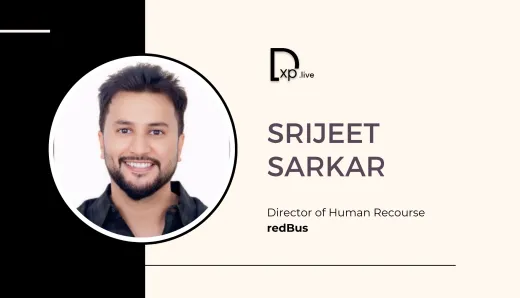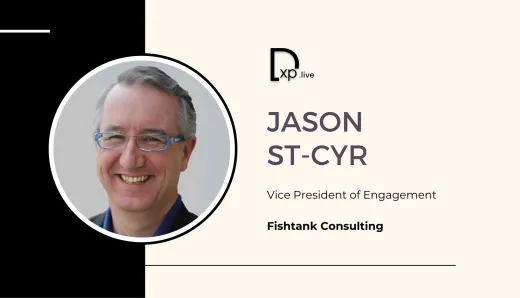Inside Drupal: John Cook on Code Craftsmanship and Community Impact
Exploring the Power of Community Engagement with John Cook
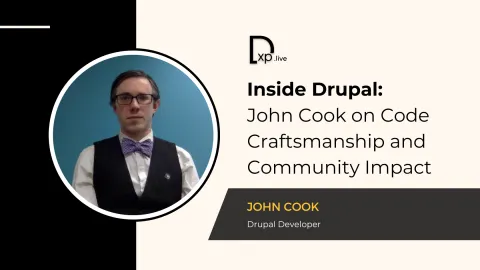
John Cook is a freelance Drupal developer with over 15 years of experience in site building, backend development, and theming. He maintains the Batch API for Drupal 8+ and actively contributes to the Drupal community as a mentor and event organizer. John serves as the Onsite Logistics Coordinator for DrupalCon Barcelona 2024, ensuring smooth event operations. Passionate about open-source, he enjoys mentoring new contributors and staying connected with the latest trends in Drupal.
Introduction
Step into the dynamic world of Drupal through the eyes of John Cook, a luminary in the field whose contributions have deeply influenced both the technology and its community. With a robust career spanning the intricacies of site building, backend development, and community mentoring, John stands as a pivotal figure in shaping Drupal's future. As the maintainer of the Batch API for Drupal 8+ and the orchestrator behind the scenes at DrupalCon Barcelona 2024, his blend of technical prowess and leadership showcases a rare dedication to advancing open-source culture. Join us as John shares the milestones of his journey, the challenges of large-scale event coordination, and his unwavering enthusiasm for nurturing new talent in the Drupal community.
You've been a Drupal developer for 15 years, involved in site building, backend development, and theming. How has your journey with Drupal evolved over the years, and what keeps you passionate about the platform?
John: I started working with Drupal about 15 years ago while searching for a platform for an e-commerce project. Over the years, I’ve transitioned from site building and theming to back-end development, particularly in PHP. Drupal has evolved steadily, which has helped developers keep pace with changes without being overwhelmed.
From a developer's perspective, Drupal’s flexibility and stability have been key factors in keeping me engaged. As a volunteer, the community is what makes Drupal special for me. I first contributed in 2015 at a local camp, where I was mentored and encouraged to get involved. That initial support has stayed with me, and now I enjoy mentoring others and contributing back to the community.
As the maintainer of the Batch API for Drupal 8+, what were the biggest challenges you faced in ensuring the stability and scalability of the API?
John: The Batch API is a critical part of Drupal’s functionality, designed to handle large tasks that can’t be completed within a single HTTP request. One of the primary challenges I faced with maintaining this API is the difficulty in testing it comprehensively. Unlike other APIs that can be easily unit tested, the Batch API's complexity often requires real-world scenarios to identify issues, especially since it handles long-running processes.
The API needs to be extremely stable because it’s used in various high-stakes operations like database migrations, bulk content updates, and system-wide changes. Any instability or bugs in the API could cause serious problems, such as data corruption or incomplete processes. This is why it hasn’t changed significantly over the years — stability is more critical than introducing new features or refactoring it unnecessarily.
One of my key contributions was creating a developer interface that simplifies the way developers interact with the Batch API. This interface provides a more intuitive way to set up batch processes, allowing developers to define tasks and manage operations more efficiently. Before this, the process of implementing custom batch operations was more complex, and it was easier to make mistakes.
Maintaining scalability has also been a major focus. As Drupal sites grow in size and complexity, the API has to handle increasingly larger data sets without performance degradation.
"One of the ongoing challenges is ensuring that the API remains robust under heavy loads, which involves optimizing how tasks are split into smaller batches and managing memory consumption."
In terms of impact, the Batch API has become an integral part of how developers manage large-scale operations in Drupal. By ensuring that it’s both stable and scalable, we’ve been able to maintain a high level of reliability for site owners and developers alike. Each change or improvement to the API must go through rigorous testing to ensure that it doesn’t inadvertently break any existing functionality, especially since so many critical operations depend on it.
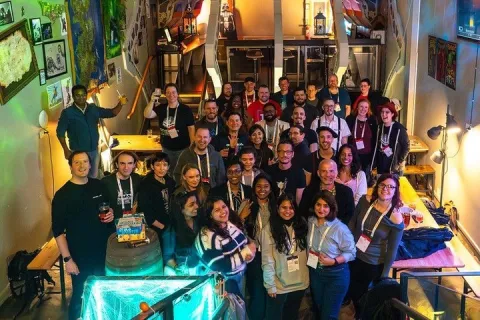
You’ve been actively involved as a volunteer and organizer for various Drupal events, including DrupalCon Barcelona 2024. Could you share some key logistical challenges you face as the Onsite Logistics Coordinator?
John: Managing volunteers is one of the biggest logistical challenges, as they handle everything from session monitoring to attendee assistance. Ensuring they are well-coordinated and have the tools they need is critical. Communication can be tricky, especially with new volunteers each year, so we’ve implemented a ticketing system that allows volunteers to claim tasks, making the process more self-organized.
To streamline this further, we developed an app to track task progress in real-time, ensuring everything runs smoothly. This app replaces the old method of using spreadsheets and helps us monitor volunteer performance and resolve issues quickly.
Resource allocation and time management are also key challenges. We need to make sure there’s enough coverage for essential areas like registration and tech support while ensuring sessions start and end on time. The goal is to handle these logistics efficiently so the event appears seamless to attendees.
How do you manage the balance between volunteering, maintaining projects, and mentoring new contributors? What advice would you give to developers interested in contributing to Drupal but unsure where to start?
John: Balancing everything requires a bit of logistical planning. When I’m volunteering at events, I make sure my freelance clients know that I’ll be unavailable for that week. After that, it’s about allocating small chunks of time throughout the week to volunteer or mentor.
For developers interested in contributing, my advice is to attend a Drupal camp or event with a mentoring team. Even if you’re new to Drupal, the process of contributing is well-supported. On contribution days, we often work on one issue collectively, and it’s exciting to see it committed by the end of the day. The community is welcoming, and you don’t need to know everything about Drupal to make a valuable contribution.
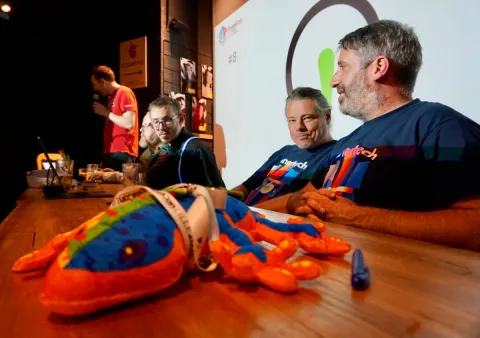
As the chair for DrupalCon Barcelona 2024, what are some of the key initiatives or highlights you’re looking forward to at the event? How do you ensure the event meets the needs of both first-time attendees and seasoned contributors?
John: One of the major highlights this year is the Starshot Initiative within the Drupal CMS project, which focuses on enhancing the user experience. This initiative aims to streamline the interface for site builders and improve overall usability, which is critical for Drupal's long-term adoption. Several sessions will cover how developers and contributors can support and build on this initiative, making it one of the most exciting focuses of the event.
For first-time attendees, we've worked hard to make the event accessible and welcoming. We’ve planned several social events like the Tuesday opening reception, designed to help newcomers network with experienced contributors in a relaxed environment. We also have the Drupal trivia, which mixes new attendees with seasoned Drupalers, encouraging collaboration and fostering connections across experience levels.
Inclusivity is a major focus—whether you’re new to Drupal or have been a part of the community for years, we want everyone to feel involved. By providing a range of sessions that cater to different skill levels and creating networking opportunities, we ensure that first-time attendees get introduced to the community, while seasoned contributors can dive deeper into technical topics and initiatives like Starshot.
How do you stay updated with the latest trends and developments in Drupal while balancing the demands of freelance projects?
John: I stay updated through newsletters and by attending local Drupal meetups and events. These meetups are great for networking and learning about the latest developments directly from other community members. Freelancing gives me the flexibility to balance client work with community involvement, which helps me stay informed.
A lot of valuable insights come from informal conversations at events, where people discuss new tools, modules, and best practices. This mix of online resources and real-world interaction keeps me up to speed with Drupal trends without disrupting my freelance work.


